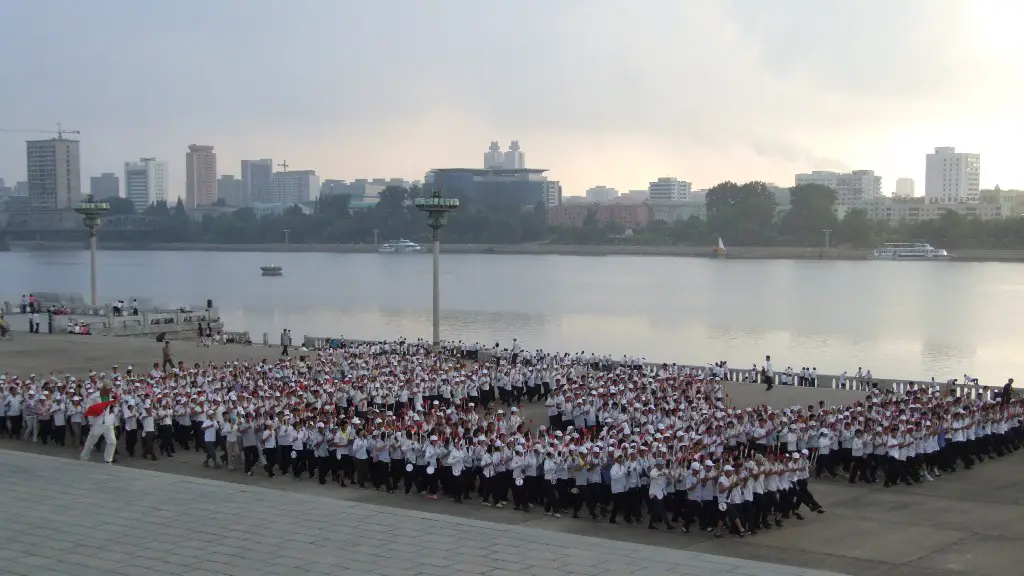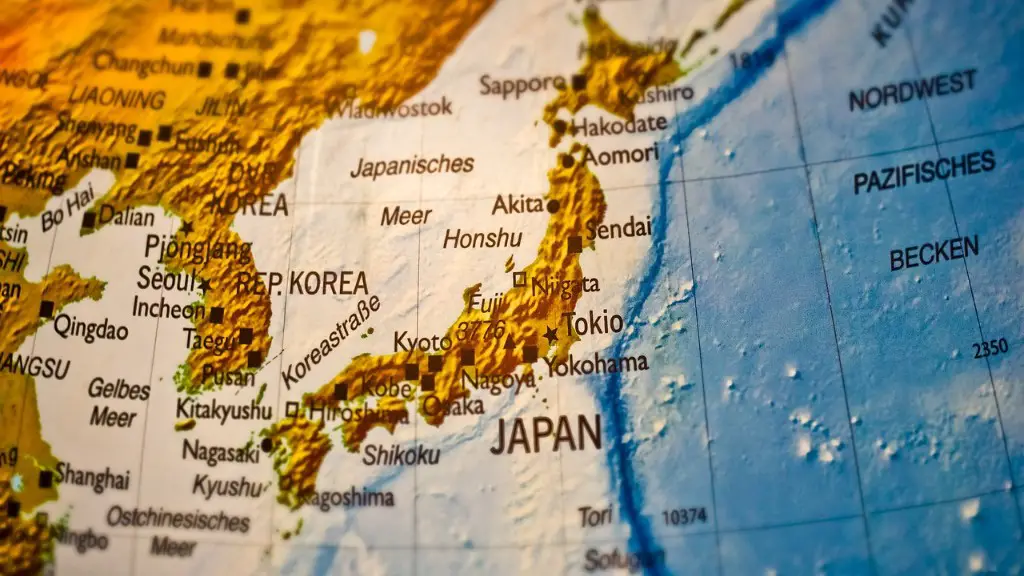The debate around whether sanctions against North Korea are effective in achieving their stated aim and what the impacts are on the people of the hermit state has been a highly contentious one for the last two decades. Following the 2017 United Nations Security Council resolutions, unprecedented economic pressure has been placed on the North Korean government to halt its nuclear weapons and ballistic missile programs.
The increased punitive actions have saddled the North Korean economy with crippling sanctions and depleted resources.
According to Human Rights Watch, North Korea has been subjected to a range of punitive measures since 2006 including bans on coal and steel imports, travel bans and asset freezes targeting the leadership, as well as naval interdiction of suspected vessels carrying banned items.
Despite this, the North Korean government has not complied with the demands of the international community or made any meaningful progress towards the nuclear disarmament required for the sanctions to be lifted. In fact, the economic pressure has increased, and the country is now subject to a range of even more punitive sanctions.
Experts have argued that the sanctions have been more effective in inflicting economic pain on North Korea than in achieving the stated policy objectives. Recent reports from the United Nations Security Council, the World Food Programme and the International Atomic Energy Agency have revealed that the sanctions are severely impacting the rights of the North Korean people and the economic well-being of the country.
Specifically, the sanctions have driven up the prices of essential goods and services, contributing to acute food insecurity and poor healthcare. The recent International Atomic Energy Agency report also stated that the exports of North Korean coal and gas have been affected by the sanctions.
These sanctions have not, therefore, been effective in achieving the objective of nuclear disarmament as intended. While the North Korean government might have been forced to the negotiating table, it is clear that the focus should be shifted towards the alleviation of the suffering of the North Korean people.
Impact of Sanctions on the North Korean People
Sanctions imposed on North Korea have had a severe impact on its economy. The most stringent of these, including the restrictions on trade in coal, petroleum and seafood, have had a crippling effect on the living standards of the North Korean people. Reports from the UN Office for the Coordination of Humanitarian Affairs (OCHA) claim that the sanctions are “a major impediment for the delivery of humanitarian assistance” to the country.
Sanctions have placed a heavy burden on the basic subsistence needs of millions of North Koreans. The World Food Programme reported that in 2018, 10.3 million people, or almost half of the population, were estimated to be affected by food insecurity while reports from the OCHA claim that malnutrition continues to be an issue in North Korea. Furthermore, the restrictions on imports of medical supplies and equipment have severely hampered the North Korean healthcare system.
Further restrictions to limit the movement of individuals, both within the country and abroad, have also had a severe impact on the North Korean people. Restrictions on the use of foreign currencies have crippled the financial system, leaving millions of North Koreans unable to access the essential services needed for their survival.
Sanctions have also been used as a tool to target certain individuals, specifically those in power. The asset freezes imposed on North Korean leaders by the international community has caused a severe drop in their purchasing power and further limited their ability to access basic needs.
Impact of Sanctions on North Korean Economy
The sanctions imposed by the international community have had a massive negative impact on the North Korean economy. North Korea is heavily reliant on exports of coal and steel, minerals, seafood and other raw materials to generate its GDP. The sanctions have directly impacted the North Korean export market, causing a significant reduction in the country’s export earnings.
Furthermore, the restrictions on access to foreign currencies have had a crippling effect on the already strained economic system in North Korea. The bans on the import of luxury items and sanctions on international banks have limited the government’s access to funds needed to finance its programs. The International atomic energy agency indicates that sanctions have had an effect on the North Korean financial sector, with banks being prevented from operating outside the country.
In addition, the restrictions on commodities and services has had a severe impact on the North Korean industry. Reports from the United Nations Security Council claim that the sanctions have caused production levels of North Korean industry to plummet. This has further impacted North Korea’s ability to generate revenue and sustain its economy.
Impact of Sanctions on the Relationship between North Korea and the International Community
North Korea has long been isolated from the international community, but the sanctions have only served to deepen this divide. The UN sanctions have resulted in a significant reduction in diplomatic and economic contacts between North Korea and its neighbours. North Korea is now subject to a range of restrictions on trade and travel, which has further limited its access to international resources, investment and economic assistance.
The sanctions have also further strained the relationship between North Korea and the United States. Despite numerous attempts at diplomacy, the two countries remain at odds and the sanctions have only served to worsen the situation. This has limited the ability of both countries to engage in meaningful dialogue and resulted in increased tensions between them.
The economic and diplomatic pressure applied by the sanctions has also led to a rise in anti-American sentiment in North Korea. The US’s withdrawal from the Iranian nuclear deal and its continued pursuit of punitive measures against North Korea has caused the North Korean people to view the United States as an aggressive and imperialist power.
Impact of Sanctions on Regional Stability
The sanctions have had a profound impact on the security situation in the Korean peninsula. The increased economic pressure has caused North Korea to feel threatened and has led to increased military spending by both sides. This has raised tensions in the region and made the situation more precarious.
Furthermore, the restrictions placed on North Korea have also caused it to become more economically dependent on China. This has further deepened the divide between North Korea and the international community and has limited the ability of the US and South Korea to effectively engage with Pyongyang.
The sanctions have also been used as a tool for political leverage by both the US and China. The US has sought to use the sanctions to pressure North Korea into surrendering its nuclear weapons program and China has sought to use them to assert its influence in the region. This has only served to further exacerbate the tensions in the region.
Efficiency of Sanctions on North Korea
The international community has long sought to use economic pressure to force North Korea to abandon its nuclear weapons and ballistic missile programs, but it is unclear whether the current sanctions have been effective in achieving this goal. While they have had a damaging effect on the North Korean economy and its people, the North Korean government still possesses nuclear weapons and continues to launch missile tests.
Moreover, the sanctions have had a devastating effect on the people of North Korea, and it is unclear whether this suffering has been worth the cost. Some experts have argued that the sanctions have been more effective in inflicting economic suffering on the North Korean people than in achieving the stated policy objectives.
Others have argued that the economic pressure should be shifted towards the alleviation of the suffering of the North Korean people. This would include providing essential services such as food and medicine and easing the tensions between the international community and North Korea by allowing the resumption of diplomatic contacts and trade.
Effectiveness of Sanctions in Achieving Nuclear Disarmament
Critics of the current sanctions regime have argued that the restrictions imposed on North Korea have not been effective in achieving the nuclear disarmament required for the sanctions to be lifted. While the economic and diplomatic pressure has increased, the country has not complied with the demands of the international community.
Furthermore, the sanctions have resulted in the suffering of millions of North Korean people, with the basic subsistence needs of many not being met. Thus, some experts have argued that the priority should no longer be on imposing economic sanctions, but rather on alleviating the suffering of the North Korean people and creating the necessary conditions for the successful negotiations.
Effect of Sanctions for Global Security
The effectiveness of the sanctions against North Korea have been called into question by experts, with many arguing that they have only served to aggravate tensions in the region and have had a detrimental effect on the lives of the North Korean people.
Moreover, the sanctions have done little to address the nuclear threat posed by North Korea or alleviate the suffering of its people. Nevertheless, sanctions have been used in the past to achieve political objectives, and it is possible that they could be effective if used in a more targeted and strategic manner.
It is also worth noting that the sanctions on North Korea have had a global impact, as the hermit state has sought to circumvent the restrictions through illicit activities. The UN has estimated that North Korea has earned millions of dollars through the smuggling of banned items and attempts to use the international financial system for illicit activities.
What are the Alternatives to Sanctions?
Sanctions against North Korea have had a severe effect on the country and its people, so much so that there are calls for the international community to shift their strategy towards the denuclearization of the Korean peninsula. While negotiations remain the best way forward, there are an array of other strategies that could be used to dissuade North Korea from its nuclear weapons program.
In addition to relying on sanctions, experts have argued that the international community should focus on providing humanitarian aid and easing the diplomatic tensions between North Korea and the US. This could be done by engaging in diplomatic dialogues, expanding people-to-people exchanges, and providing economic incentives to North Korea.
Alternatively, the UN could use ‘smart sanctions’ that target the assets of the North Korean leadership, instead of the entire country, to avoid further suffering of the North Korean people. There is also the option of offering economic incentives directly to North Korea as an incentive to abandon its nuclear program.
Recommendations Going Forward
It appears clear that the sanctions imposed on North Korea have had a devastating effect on the country, yet have not been effective in achieving the desired goal. Therefore, the international community should focus on the alleviation of the suffering of the North Korean people, while at the same time encouraging the resumption of diplomatic contacts and expanding economic incentives.
Furthermore, the UN should review its current sanctions regime and consider the use of targeted sanctions that focus on the North Korean leadership instead of applying punishing measures on the country as a whole. Additionally, the international community should focus on establishing a pathway to sustainable development in North Korea, and engaging in meaningful dialogue and negotiations.




